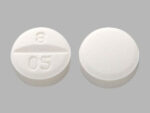Riboflavin, also known as vitamin B2, has been studied as a potential supplement for migraine prevention. Some individuals with migraines may have lower levels of riboflavin in their bodies, and supplementation may help reduce the frequency and severity of migraine attacks. Here’s some information on riboflavin and its use in managing migraines:

How Riboflavin Works for Migraines:
- Riboflavin is involved in various metabolic processes in the body, including the production of energy.
- It plays a role in the functioning of mitochondria, which are the energy-producing structures within cells.
- Riboflavin may help stabilize the energy production process in brain cells, which can be disrupted in migraine.
Studies on Riboflavin for Migraines:
- Research studies have suggested that riboflavin supplementation can be effective in reducing the frequency and intensity of migraine attacks in some individuals.
- One clinical trial published in the journal “Neurology” found that daily supplementation with high-dose riboflavin (400 mg) reduced the frequency of migraines by about 50% in some participants.
- The preventive effects of riboflavin may take several months to become noticeable, so it’s important to continue supplementation as recommended by a healthcare provider.
Dosage and Recommendations:
- Riboflavin is available over-the-counter as a dietary supplement.
- The typical recommended dosage for migraine prevention is 400 mg per day, although some individuals may benefit from higher doses.
- It’s essential to consult with a healthcare provider before starting any new supplement, including riboflavin, to determine the appropriate dosage and assess whether it’s a suitable option for your specific migraine condition.
Potential Side Effects:
- Riboflavin is generally considered safe when taken at recommended doses.
- Some individuals may experience harmless side effects such as bright yellow urine, but this is not a cause for concern.
- However, like any supplement, it’s important not to exceed the recommended dosage, as excessive intake of riboflavin can lead to adverse effects.

Considerations:
- Riboflavin should be used as part of a comprehensive migraine management plan, which may include lifestyle modifications and other preventive medications.
- It may take several weeks to months to see the full benefits of riboflavin supplementation, so be patient and consistent with the treatment.
- Always consult with a healthcare provider before starting or discontinuing any migraine treatment, including riboflavin, to ensure it’s appropriate for your individual situation.
As with any supplement or medication, what works best for managing migraines can vary from person to person. A healthcare provider can help determine if riboflavin is a suitable addition to your migraine management plan and provide guidance on its use.
Pain Medications, Pain Relief, and Pain Management








